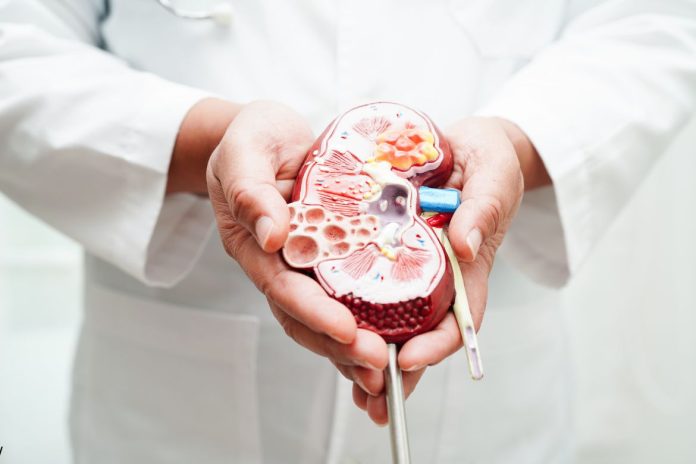Urological health is a vital aspect of overall well-being that often doesn’t receive the attention it deserves. The urinary tract and male reproductive system are complex networks that play crucial roles in maintaining the body’s balance and function. When problems arise in these systems, they can lead to discomfort, pain, and more severe health issues. Understanding common urological conditions and knowing when to see a urologist can help you maintain good urological health and prevent complications.
What is Urology?
Urology is a branch of medicine that focuses on the health of the urinary system, which includes the kidneys, bladder, ureters, and urethra, as well as the male reproductive organs, such as the testes, prostate, and penis. A urologist is a specialist who diagnoses and treats conditions related to these systems, ranging from infections to cancers.
Common Urological Issues
- Urinary Tract Infections (UTIs):
- Symptoms: UTIs are one of the most common urological issues, especially in women. Symptoms include a burning sensation during urination, frequent urge to urinate, cloudy or strong-smelling urine, and pelvic pain.
- Causes: UTIs occur when bacteria enter the urinary tract, often through the urethra. While most infections are easily treated with antibiotics, recurrent UTIs may require a visit to a urologist to rule out underlying issues like kidney stones or structural abnormalities.
Kidney Stones:
- Symptoms: Kidney stones are hard deposits of minerals and salts that form in the kidneys. Symptoms include severe pain in the back or side, pain during urination, blood in the urine, and nausea or vomiting.
- Causes: Kidney stones can develop due to a variety of factors, including dehydration, diet, obesity, and genetics. A urologist can help manage and treat kidney stones, which may involve medications, dietary changes, or surgical procedures to remove or break up the stones.
Benign Prostatic Hyperplasia (BPH):
- Symptoms: BPH is an enlargement of the prostate gland that commonly occurs in older men. Symptoms include difficulty starting urination, weak urine flow, frequent urination, especially at night, and the feeling of incomplete bladder emptying.
- Causes: As men age, the prostate naturally enlarges, which can constrict the urethra and affect urine flow. A urologist can diagnose BPH through exams and tests, and treatment may include medications, lifestyle changes, or surgery to relieve symptoms.
Erectile Dysfunction (ED):
- Symptoms: ED is the inability to achieve or maintain an erection sufficient for sexual intercourse. It can affect men of all ages but is more common as men get older.
- Causes: ED can be caused by a variety of factors, including cardiovascular disease, diabetes, psychological issues, and certain medications. A urologist can evaluate the underlying cause of ED and recommend appropriate treatments, which may include medications, lifestyle changes, or therapy.
Prostate Cancer:
- Symptoms: Prostate cancer often develops slowly and may not show symptoms in the early stages. When symptoms do appear, they can include difficulty urinating, blood in the urine, bone pain, and erectile dysfunction.
- Causes: The exact cause of prostate cancer is unknown, but risk factors include age, family history, and certain genetic changes. Regular screenings are crucial for early detection. A urologist plays a key role in diagnosing and managing prostate cancer, which may involve surgery, radiation, or other treatments.
Bladder Control Problems (Incontinence):
- Symptoms: Incontinence is the loss of bladder control, leading to accidental leakage of urine. It can range from occasional leakage when coughing or sneezing to an inability to control the urge to urinate.
- Causes: Incontinence can result from weakened pelvic muscles, nerve damage, or conditions such as diabetes and obesity. A urologist can offer treatments that include pelvic floor exercises, medications, or surgery, depending on the severity of the condition.
When to See a Urologist
It’s important to consult a urologist if you experience any of the following symptoms:
- Persistent pain in the lower back, abdomen, or groin
- Blood in the urine
- Frequent or painful urination
- Difficulty starting or maintaining a urine stream
- Erectile dysfunction or other sexual health issues
- Noticeable changes in urinary habits, such as incontinence or urgency
- Recurring urinary tract infections
- Symptoms suggestive of kidney stones, such as severe pain or nausea
These symptoms can indicate underlying urological conditions that require professional evaluation and treatment. Early diagnosis and intervention by a urologist can prevent complications and improve your quality of life.
Your urological health is a critical component of your overall well-being. By understanding common urological conditions and knowing when to seek help from a urologist, you can take proactive steps to maintain your health and address issues before they become more serious. Don’t ignore symptoms or delay seeking medical attention—regular check-ups and prompt consultations with a urologist can help you lead a healthier, more comfortable life.
If you’re experiencing any concerning symptoms or have questions about your urological health, schedule a consultation with a urologist today to get the care and guidance you need.









